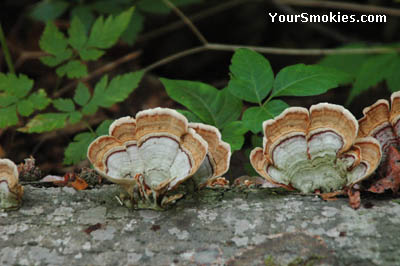Due to ongoing efforts by the park department to eradicate the exotic Hemlock Woolly Adelgid from infested hemlock trees, the Cades Cove loop road will be partially closed to bike and vehicular traffic from November 28th through November 29th 2006 – weather permitting.
Fortunately the closure will not shut down the entire loop on Wednesday the 29th and this interruption is after the Thanksgiving peak traffic expected in the 11 mile Cades cove loop. On Wednesday only the far western end of the loop will be closed so vehicles and bikes must exit the back end of the loop at the Hyatt Lane bypass. Those looking to hike the Cooper Road trail, Abrams Falls trail, Rabbit Creek trail, Wet Bottom Trails, and Gregory Ridge trailhead must walk to the trailhead, same if you wish to visit the Cable Mill area.
If the weather conditions in the Smoky Mountain National Park do not permit spraying due to heavy rain or freezing temperatures the closure will be rescheduled. I have also been advised that if all goes well that the road may be reopened during the latter part of November 29th. The Cades Cove Visitor Center will be closed on both the 28th and the 29th, but the restroom facilities will remain open. You may call the national park at (865) 436-1200 to find out the days status of the road closure.
The Great Smoky Mountain National Park with have forestry technicians spray infected hemlock tress in Cades Cove with a soap/oil solution sprayed from large truck-mounted units that should help control this pest. According to Tom Remaley, Hemlock Woolly Adelgid Project Coordinator "This is one of three treatment methods that we employ throughout the Park. The hemlock trees that have been treated along the Loop Road over the past several years appear to be strong and healthy. Just beyond the reach of the roadside spraying equipment, there is a noticeable decline of hemlock trees showing signs of branch mortality, twig dieback, and foliage discoloration."

This is not the only way the national park service employs to control the pesky Hemlock Woolly Adelgid. The park service also uses systemic insecticides and biocontrol insects in an effort to eradicate the pest which was discovered in the Smokies in 2002.
